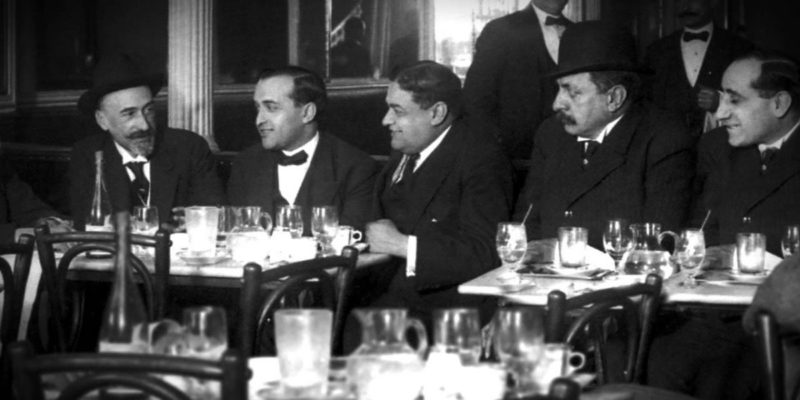10 Characteristics of the Generation of '98
2 years ago
The Generation of '98, also known as the Disaster Generation, is a group of Spanish writers and thinkers who emerged at the end of the 19th century. This generation was characterized by its concern for the political, social and cultural crisis in Spain. These writers questioned the role of Spain in the world and reflected on national identity and the nation's need for cultural renewal.
Among the most outstanding writers of the Generation of '98 are Pío Baroja, Azorín, Miguel de Unamuno and José Martínez Ruiz, also known by his pseudonym "Azorín". These writers shared a critical vision of the Spanish reality, its social, political and cultural backwardness and the need for a profound renewal in all these areas. His works, mostly essays and novels, were characterized by their sober, critical and profound style, with a social background and a purpose of denouncing the reality of the time.
In short, the Generation of '98 is a group of writers who marked a milestone in the history of Spanish literature and is considered one of the most important literary currents of the 20th century. His works and thoughts had a great influence on the cultural and social development of Spain and on the vision of this country. Through their writings, the Generation of '98 managed to reflect the crisis and disaster of an era and capture the ideals that led to the nation's cultural renewal.
List of the 10 most important characteristics of the generation of '98
- Disenchantment with the Spain of the Restoration: The Generation of '98 was characterized by showing a deep disenchantment with the political, social and cultural situation in Spain during the Restoration.
- Search for the essence of Spain: The writers of this generation considered the need to search for the true essence of Spain, moving away from the clichés and stereotypes that existed about their country.
- Concern for the problem of national identity: The Generation of '98 was interested in the problem of Spanish national identity, which was in crisis at the time, and proposed solutions and alternatives.
- Influence of Krausism: This philosophical current had a great influence on the Generation of '98, which shared some of its principles, such as the importance of reason and the search for truth.
- Concern for the moral regeneration of Spain: The writers of this generation considered that Spain should morally regenerate itself as a society in order to overcome the crises it was going through.
- Critical vision of the history of Spain: The Generation of '98 had a critical vision of the history of Spain, which it considered as a succession of failures and setbacks in which the cause of the current situation had to be found.
- Search for new literary forms: The writers of this generation experimented with new literary forms, moving away from conventions and looking for a renewal of Spanish literature.
- Recovery of distinguished literary figures of the past: The Generation of '98 recovered the figure of some Spanish writers forgotten at the time, such as Francisco de Quevedo or Luis de Góngora, valuing them as a symbol of the cultural greatness of Spain.
- Concern for education and culture: The Generation of '98 considered that a solid education and culture were the basis for a regeneration of Spanish society.
- Commitment to the social reality of his time: The writers of this generation got involved in the social reality of their time, denouncing injustices and inequalities and trying to carry out concrete proposals for change.
Final comments about the generation of '98
In short, the generation of '98 was a literary and cultural movement that arose in Spain at the end of the 19th century. This group of writers and thinkers was characterized by their pessimism and disenchantment with the social, political and cultural reality of Spain at that time. One of its central themes was the criticism of regenerationism, a political and social movement that proposed to modernize Spain through education, science and technology, among other things. Instead, the generation of '98 affirmed the need to recover the cultural and historical roots of Spain, and to explore the idiosyncrasy of its people.
In addition, the generation of '98 was also noted for its innovative and experimental literary style. Some of the most important authors of this movement, such as Miguel de Unamuno, Pío Baroja, and Antonio Machado, incorporated elements of philosophy, psychology, and symbolism into their works, creating complex and introspective novels and poetry. The influence of the generation of '98 extended beyond Spain, and their ideas and works continue to be the object of study and admiration throughout the world. In short, the generation of '98 is a literary and cultural movement that left a lasting mark on the history of Spain, and that continues to inspire generations of writers and thinkers to this day.
📂 Citar artículo
ENCICLOPEDIA DE CARACTERÍSTICAS (2025) 10 Characteristics of the Generation of '98, en 10caracteristicas.com. https://10caracteristicas.com/en/10-characteristics-of-the-generation-of-98/ (Consultado el: 20-01-2025)
🌐 Enlazar artículo
📌 Enlace corto a esta página:
https://10caracteristicas.com/?p=2052
📑 Impresión del artículo
Imprimir publicación
¿Quieres leer más artículos similares a: 10 Characteristics of the Generation of '98 (Actualizado 2025)? Puedes visitar la categoría Language and literature para ver más contenido relacionado.

